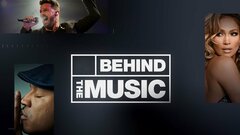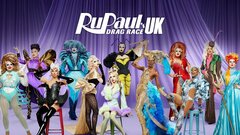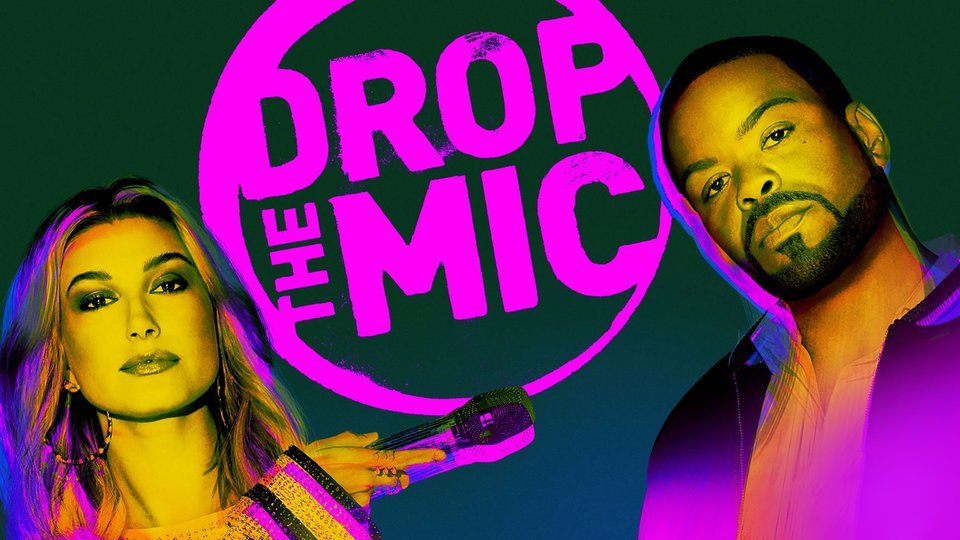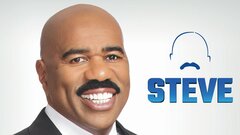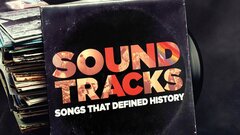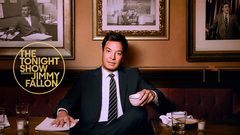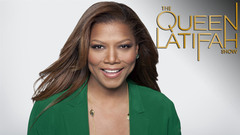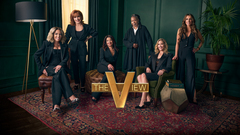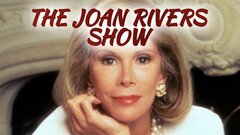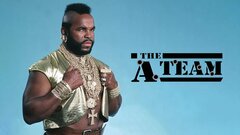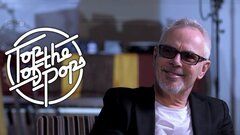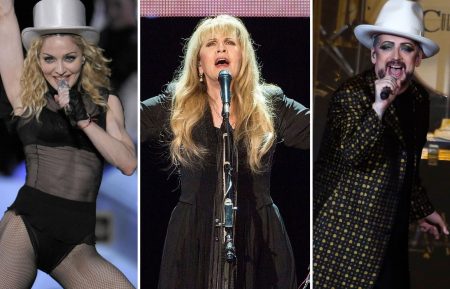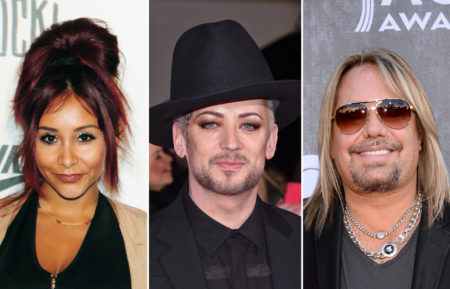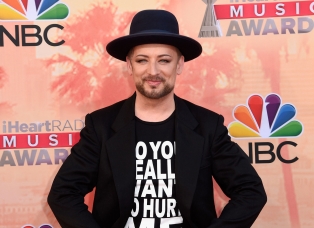Fusing a New Romantic worldview, synth-pop beats, and plenty of eyeliner, Boy George went on to become one of the most recognizable pop stars of the 1980s. The flamboyant singer-songwriter came to prominence after forming the band Culture Club, the Grammy Award-winning quartet who helped define the decade with its ubiquitous hits "Do You Really Want to Hurt Me?" (1982) and "Karma Chameleon" (1983).
Yet even with the band's commercial success and winning the Best New Artist Grammy in 1984, George struggled with addiction. His rise to fame was featured in an elaborate stage musical financed by Rosie O'Donnell, "Taboo" (2002), which had a short Broadway run. Not one to hold back from telling his story through music, the always outspoken George released several memoirs that exposed the life of a singer who publicly fell from grace, yet would remain a pop music icon and symbol of the 1980s to his fans worldwide.
George Alan O'Dowd was born on June 14, 1961 in Eltham, Kent, England. The third child born to working-class Irish parents Gerry and Dinah O'Dowd, the future pop star felt out of place in his large, male-dominated brood which included four brothers and a sister, seeing himself as the "pink sheep" of the family. Even at a young age, George began wearing makeup and dressing in flamboyant outfits to stand out in the crowd. Although he was fascinated with the arts, George had no interest in other subjects and was eventually expelled from his school, which forced him to take such menial jobs as picking fruit and working as a milliner.
Eventually, his love for theatrics landed George a job as a makeup artist with the Royal Shakespeare Company. Around this time, George found himself squatting at Warren Street in Central London, home to various fashion students and struggling artists and musicians. This community of creative luminaries gave birth to the New Romantic movement that became popular in the early 1980s. Everyone from 19th Century thinkers to glam rock icon David Bowie heavily inspired the New Romantics. George and his circle of friends, which included fellow aspiring singer Marilyn, were often decked out in gender-bending clothes, makeup, and hairstyles while partying - sometimes working as cloakroom attendants - at their favorite nightclub The Blitz.
George's flamboyant look caught the attention of music executive Malcolm McLaren, who had previously and famously managed the Sex Pistols. McLaren invited George to join another band he was managing, Bow Wow Wow -- who themselves would release the successful 1982 cover of the Strangelove's "I Want Candy." Fronted by lead singer Annabella Lwin, Bow Wow Wow performed a few shows with George - who was using the stage name Lieutenant Lush - yet their collaboration ultimately proved unsuccessful due to tension between Lwin and George.
After he was dropped from the group, George decided to form his own band with bassist Mikey Craig, guitarist and keyboard player Roy Hay, and percussionist Jon Moss. The group changed names a couple of times - including In Praise of Lemmings and Sex Gang Children - before realizing their various ethnic backgrounds made them a Culture Club. With George on lead vocals, Culture Club released its debut album Kissing to Be Clever (1982) under the Virgin record label. After two unsuccessful releases, the band landed at No. 1 in the U.K. with the third single, the ballad "Do You Really Want to Hurt Me?" The song also introduced Culture Club to the U.S. when it landed at No. 2 on the Billboard Hot 100 chart in 1983, second to no less than Michael Jackson's defining hit, "Billie Jean."
Blending various genres such as pop, New Wave, reggae, and soul, Culture Club cemented its international success with its sophomore release Colour by Numbers (1983). Thanks to the massive hit single "Karma Chameleon," which spent several weeks at the top of the Billboard Hot 100, the band became a household name, while its accompanying music video showcased George's unique drag-queen style. "Karma Chameleon" went on to become Culture Club's signature track while Colour by Numbers, which also included the hits "Church of the Poison Mind" and "Miss Me Blind," earned its rightful place in the musical reference book 1001 Albums You Must Hear Before You Die (2005). As Culture Club's breakout star, George was a featured vocalist on the U.K. charity single "Do They Know It's Christmas?" (1984), singing alongside George Michael, U2, and Phil Collins. Culture Club capped off penultimate year by winning the 1984 Grammy Award for Best New Artist.
Despite their fame, Culture Club was experiencing internal turmoil brought on by the turbulent relationship between George and Moss. Neither the other band members nor their fans knew of the pair's romantic entanglement that was marred with constant arguments and physical abuse. The pressure of working together while also keeping their relationship a secret from the rest of the world took its toll not only on George and Moss, but on the whole group. Culture Club's third album Waking Up with the House on Fire failed to live up to its predecessors, both commercially and critically, yielding the modest hits "The War Song" and "Mistake No. 3." George's drug use also escalated in the mid-1980s when he became addicted to cocaine and heroin. Coupled with his strained relationship with Moss (who struggled with his homosexuality), George's increasing drug habit ultimately brought about the band's demise. Following the release of its appropriately titled fourth album From Luxury to Heartache (1986) and a cancelled U.S. tour, Culture Club disbanded. George's media presence was relegated to tabloid headlines for his heavy partying and a 1986 arrest for possession of illegal substances.
While struggling with his addiction, first with heroin and then with prescription narcotics originally prescribed to help kick heroin, George attempted a solo career post-Culture Club. He released his solo debut Sold in 1987, which spawned only one U.K. No. 1 called "Everything I Own" and barely cracked the Top 200 stateside. Two years later, George formed his own label, More Protein, and formed the electronic and world music group Jesus Loves You. After several years laying low - and a failed first attempt at a Culture Club reunion in 1989 - the singer reemerged on the charts in 1992 with a cover of Dave Berry's "The Crying Game," recorded as the theme song for Neil Jordan's Academy Award-nominated film of the same name. George continued recording music throughout the 1990s, trying his hand at different genres such as the rock-inspired album Cheapness and Beauty (1995) and moonlighting as a nightclub DJ. In 1995, he released his autobiography Take It Like a Man.
George revisited his New Romantic roots by writing songs for the stage musical "Taboo," which made its West End debut in 2002. Set in West London during the early 1980s, the production followed the rise of George's career, from his early days squatting up to his successful years conquering the world with Culture Club. Although he co-starred in the production, George opted not to play himself, instead portraying nightclub promoter and performance artist Leigh Bowery. The musical premiered on Broadway in 2003 with financial backing from Rosie O'Donnell, however, less-than-stellar reviews forced production to close after only 100 performances.
Unable to shake off his past demons, George found himself back in a tidal wave of legal troubles beginning in 2005 after he was arrested in New York on suspicion of cocaine possession and falsely reporting a burglary. The cocaine charge was dropped the following year, but the singer pleaded guilty for the burglary count and was sentenced to community service and ordered to attend a drug rehabilitation program. In 2008, Norwegian male escort Auden Carlsen accused George, along with an unidentified male, of beating him and handcuffing him to a bedroom wall at the singer's flat in London. George claimed Carlsen, who managed to escape from his captives, stole photographs off his laptop during a meeting the previous year. The court found George guilty of false imprisonment and sentenced to 15 months in prison. The fallen pop star served four months of his sentence before being released on home detention with a required ankle monitor for 90 days.
Culture Club's subsequent reunions proved more successful than its earlier attempt. George and Moss put their past behind them as the group performed together for the first time in years on "VH1 Storytellers" (1998); the episode kicked off a successful reunion tour and an accompanying Storytellers album. The following year, Culture Club released its fifth studio album Don't Mind If I Do, which peaked at No. 64 in the U.K. They reunited again in 2002 for a 20th anniversary concert at London's Royal Albert Hall. Even though another reunion tour was planned for 2011, the group only ended up playing two live shows in Dubai and Sydney, Australia. The singer - who had converted to Buddhism - continued touring as an electronic music act and also released Ordinary Alien - The Kinky Roland Files (2010), his first solo album in 10 years. George released his third tell-all book, titled King of Queens in 2012. In April of that year, the singer posted a photo of himself with a bruised eye on his Twitter account. George was reportedly assaulted, after a fan attempted to steal the singer's hat, outside a nightclub in England.
By Candy Cuenco












